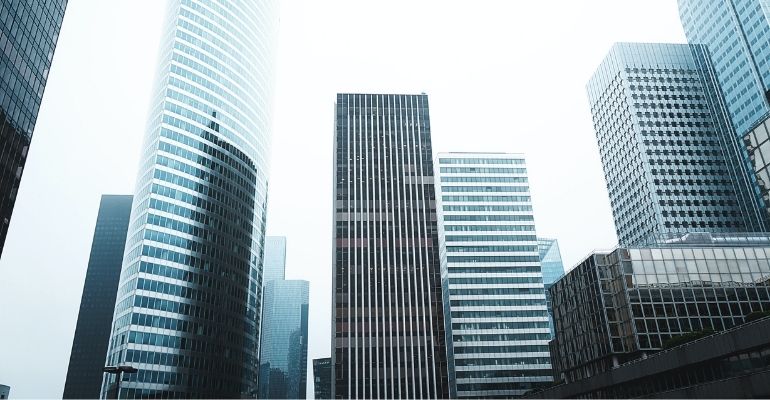Five predictions for the real estate investment market in 2021
10 February 2021 • Articole
As multiple vaccine programmes are rolled out worldwide, JLL’s recent study looks at the effects of the past year and its impact on the market in 2021 and beyond.
The 2020 pandemic transformed the workplace in a way that has been unprecedented in the modern age. At the start of 2021, we are only beginning to see what a post-Covid-19 workplace could look like, however, according to industry experts JLL, these are some of the trends that are expected to stick over the next year, and further into the future.
THE TRANSFORMATION OF THE OFFICE SPACE
The workspace of the future is likely to be a hybrid model, based on utilising home, central office, and satellite office spaces. The key takeaway from 2020 is that flexibility is king. As the report says: “Companies and employees are still figuring out the ideal office-home balance. Working from home is great, for example, because it eliminates the commute. On the other hand, people have made clear they like the office for collaborating or getting support from their managers.”
THE END OF THE CITY-CENTRIC BUSINESS MODEL?
Traditionally, businesses have required offices in key metropolitan hubs to do work effectively, but also to be seen as credible forces amongst their industry competitors. According to JLL, this is something unlikely to disappear, although it is a trend that is likely to change as a result of 2020. Indeed, as Jeremy Kelly, a director in JLL Global Research, says: “the pandemic struck at the heart of what cities are all about: togetherness, connectivity, shared services and shared spaces.” As a result, Kelly believes that the future of cities will rely on “distributed urbanisation.” As the report says: “cities are expected to retain their pulling power, continuing to attract ambitious people for work and education, but there are caveats to continued growth. For instance, it’s likely that cities will spread out into networks of suburbs and smaller cities.”

THE FUTURE OF INVESTMENT
Over the past 12 months, investors have remained “cautious-but-confident” according to JLL, an approach which they expect to continue this year. As is to be expected during a health crisis, essential sectors saw a surge while cross-border investments remained low. This is something, however, which JLL expects to change: “While demand from foreign investors in China dipped in 2020, we’ve already seen a return of interest in the second half of the year,” Sigrid Zhou, director, investment research, China, JLL. “If all goes well, we’d expect that to continue.”
THE LOOMING CLIMATE CRISIS
In a frank statement, Neil Murray, the CEO of Corporate Solutions at JLL said ““A sustainable future is our only future, and the companies who don’t make the pivot to carbon-neutral investments now will assume even greater risk to their bottom line.” Indeed, when corporate finances are strained, environmental issues tend to be “be among the first to get sidelined,” says the report. However, it shouldn’t be the case, as there is clear evidence of the profitability of climate-friendly builds, according to JLL: “In real estate, assets with high ESG (environmental, social and corporate governance) ratings can attain a 33 percent rental premium over comparable non-green certified buildings.”
PROP TECH TRENDS IN 2021 AND BEYOND
JLL predicts that Prop Tech trends will “only accelerate in 2021.” Expected trends include the increasing use of smart building tools, the use of Prop Tech to regulate and manage the safety and health standard of workspaces. As a result of the pandemic, “virtual tours have picked up steam, while contactless technologies are becoming standard”.
Indeed, in a clear sign of things to come, Richard Fennell, head of strategy development, Australia and head of PAM – Australia said: “Facial recognition and biometric scanning for access control are no longer on the wish list, but the current expectation.”
Source: Cityscape